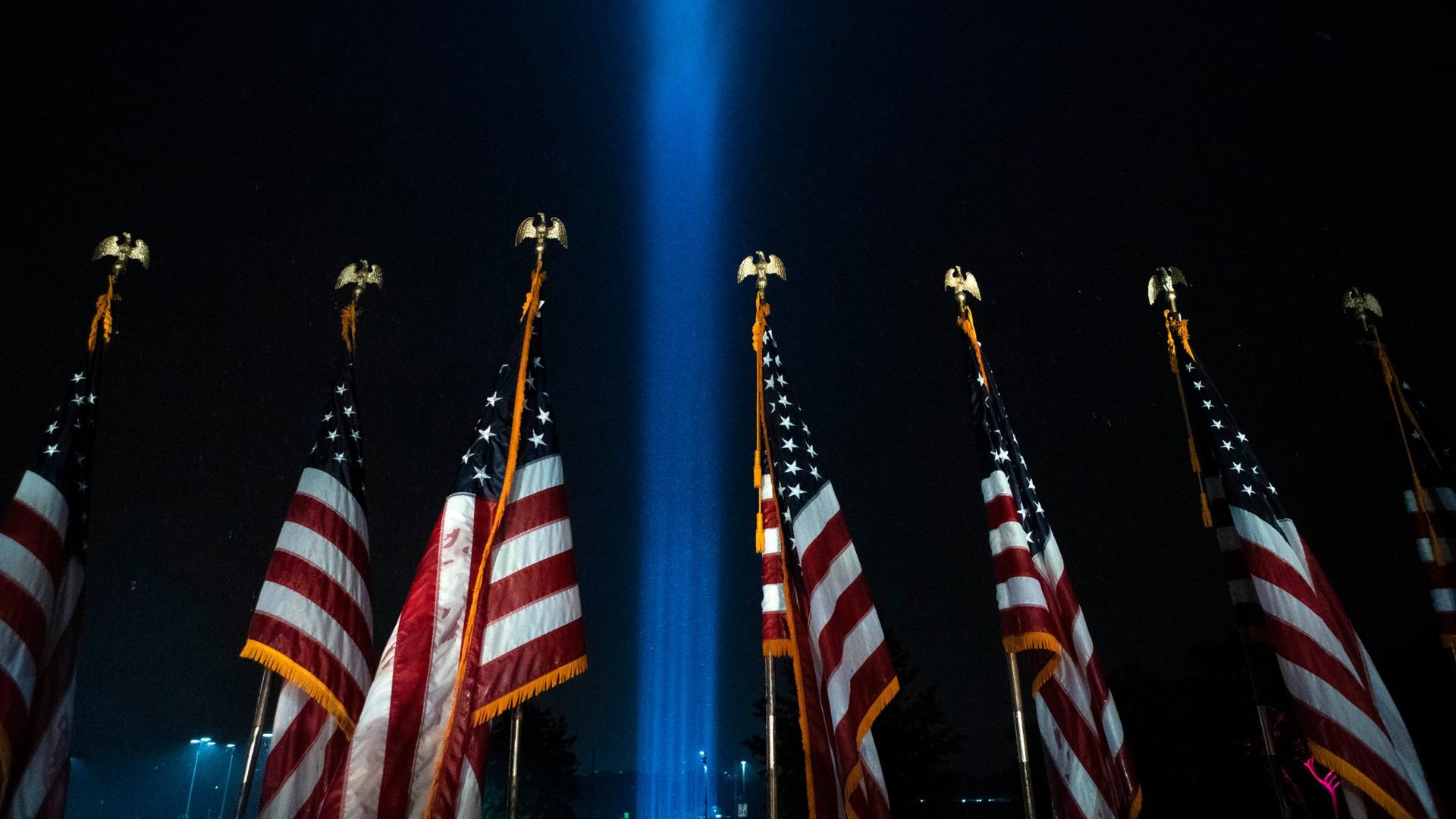Earlier this week, a whistleblower made some tough accusations against the Department of Homeland Security (DHS), saying officials there purposefully downplayed certain threats in briefing President Donald Trump — not giving him all of the real intelligence about Russian meddling in US domestic affairs and the national security threat posed by white supremacists.
Related: Russian bounty allegations: What did Trump admin know and when?
This alleged dysfunction harkens back to another time, before the attacks of Sept. 11, 2001. The FBI and CIA had known for years that al-Qaeda leader Osama bin Laden presented a serious threat to US security. We now know that rivalries and silo-ing of crucial intel within different agencies stymied efforts to prevent the deadliest attack ever on American soil.
Related: Remembering how America experienced 9/11
So has anything significant changed, 19 years on, within the US intelligence community?
The World host Marco Werman spoke with Garrett Graff, author of “The Only Plane in the Sky: An Oral History of 9/11.”
Related: An American who interrogated al-Qaeda suspects says it’s about talk — not torture
Marco Werman: Could the 9/11 attacks have been prevented if our national security agencies were working as they should be, cooperatively?
Yes. The short answer is the 9/11 plot had opportunities for the US to disrupt it. You know, part of that, though, is I think we misunderstand what disrupting the 9/11 plot would have likely looked like. You know that the CIA, for instance, knew that two of the would-be 9/11 hijackers were inside the United States in the summer of 2001 and did not tell the FBI. So it’s possible that had that information been passed correctly, agency to agency, the plot might have been disrupted without us ever understanding what the plot was that people were heading toward.
Former security officials have confirmed that the dysfunction in the US security apparatus was very apparent leading up to those attacks. Now, in the face of new threats like those from Russia, what do you make of the whistleblower’s charge that DHS was both failing to brief Trump on threats and actually concocting threats that intelligence did not see? What was your gut reaction when you heard that?
I mean, this is all very troubling, in part because the two agencies, the two organizations that were specifically created in the wake of 9/11 to prevent the next 9/11 are the Department of Homeland Security and the Office of the Director of National Intelligence (ODNI). [They are] two organizations meant specifically to pull together pieces of the government’s security apparatus into a more coherent and understandable picture. Donald Trump’s actions, in a number of different ways, though, have hobbled and broken both of those organizations.
So if you put aside the chaos that Trump sows — that seems to be part of his MO — what has been the net change 19 years after 9/11, when it comes to the interoperability between US intelligence agencies? Is there still dysfunction?
Much less [dysfunction] than there was before. And some of that is because there have been legal changes to the authorities and information sharing that were specifically prohibited pre-9/11. And also, there is just a much more regular rhythm of these agencies working together. And so, you have organizations that are part of ODNI that have the FBI and CIA literally sitting together in the same room, talking every day about what they are seeing in the counterterrorism arena. And so there’s better muscle memory now, under normal circumstances, than there was before 9/11. Whether that information is making it to the right leaders, and whether leaders are acting on it — that’s a separate problem in the Trump administration.
How do we improve things? And is it a personnel issue? Is it a leadership issue? Or do you think dysfunction may be rooted more deeply than all of that?
The dysfunction is rooted in the dysfunction and the chaos of the presidency and this White House. I think what you need to have are permanent Senate-confirmed leaders atop these organizations who have some semblance that they’re actually going to be in charge of these organizations for a period of time. You know, the ability to pick their staffs, pick their leaders and get people into these key roles.
So, those are kind of the nuts and bolts of national security. You also wrote today about another kind of security threat: conspiracy theorists. Tell us more.
You know, this 19th anniversary of 9/11 gives us an opportunity to look back at the legacy of those attacks. And one of the things that I think really stands out in 2020 is the role of the 9/11 Truth movement — all of the conspiracy theories around the US government’s role in 9/11. [They] have proved so lasting and persistent, even as a fringe movement, 19 years later. And as we see an increasing strain of our politics today being driven by the conspiracy theorists of QAnon on the Republican side, that should be really worrisome to us. We have already seen with 9/11 how persistent these conspiracy theories can be — not just as a fringe movement. Now in 2020, the QAnon conspiracy theories are actually being believed now by a majority of Republican voters and are being embraced by the president at the White House. And we are actually beginning to see members of Congress embrace them. One of the things that the dysfunction in places like DHS and ODNI is doing is giving room and oxygen for conspiracy theories like QAnon to grow in the Republican body politic. And the embrace by the president of conspiracy theories — even as he rejects or downgrades the actual intelligence that he is receiving from the US intelligence community — is really troubling about what the president is acting upon on a given day.
This interview has been edited and condensed for clarity.
